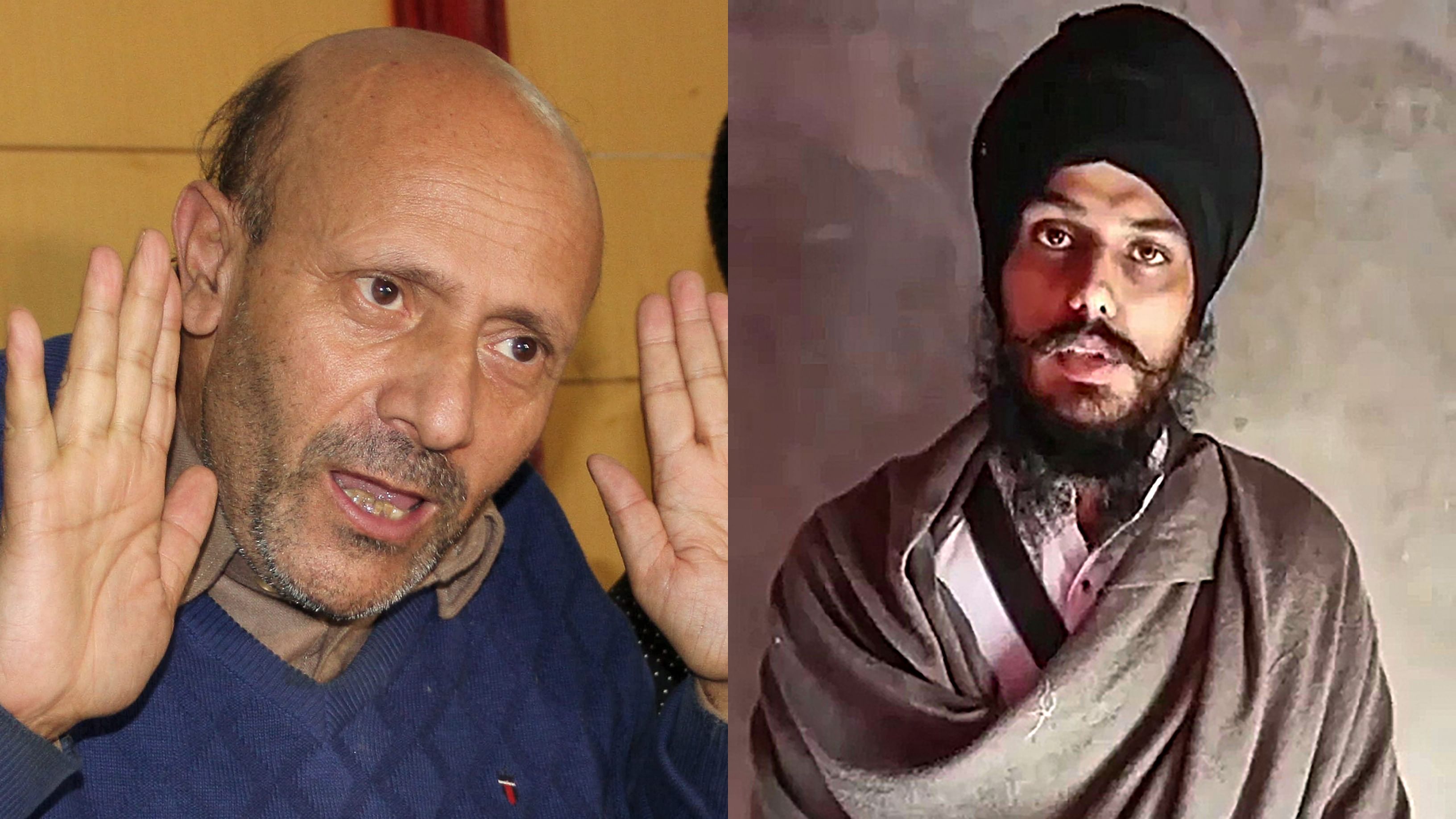
Jailed leaders Engineer Rashid (L) and Amritpal Singh (R).
Credit: PTI File Photos
The victory of two candidates from two border states who contested elections from jail has drawn special attention because they face serious charges under the National Security Act and the Unlawful Activities (Prevention) Act. Another candidate, known as a religious radical, also won. All of them, contesting as Independents, won convincing victories against candidates from established and mainstream parties. Waris Punjab De chief and religious preacher Amritpal Singh, incarcerated in Dibrugarh jail, won from Khadoor Sahib in Punjab. Sarabjit Singh Khalsa, the son of Beant Singh, the assassin of former Prime Minister Indira Gandhi, won from Faridkot. Engineer Rashid, who is in Tihar jail facing charges in a terror funding case, defeated former J&K Chief Minister Omar Abdullah in Baramulla. Their victories show the failure of mainstream parties to relate to the sentiments of people in those constituencies and address their specific grievances.
Amritpal Singh and Sarabjit Singh defeated Congress, AAP and Akali Dal candidates with high margins. Punjab’s social and political life has undergone changes in the last few years. Though the Bhindranwale-led militancy ended in the 1990s, the state has since faced problems like economic decline, unemployment and widespread drug addiction and residual militancy-related issues. The split between the Akali Dal and the BJP may have thrown some light on the communal underpinning of politics in some areas. With the rise of the AAP, mainstream politics broke up in many parts. One important theme which Amritpal Singh had highlighted during the campaign and even before his arrest last year was the drug problem in the state. Water-sharing with Haryana, the 1984 anti-Sikh riots, and the continued incarceration of many Sikh political prisoners are all issues that have resonance in Punjab. Rashid’s victory in Kashmir is also a vote against conventional politics. Former Chief Minister Mehbooba Mufti, who is also a face of family politics in Kashmir, was defeated from Anantnag-Rajouri. There was high polling in the state where the central government is yet to deliver on its promises of statehood and assembly elections. Promises of development also have not materialised. The vote and the outcome in Kashmir reflect the people’s faith in democracy but disillusionment about how politics has been practised there.
All the three winners are radicals or hardliners in the conventional sense and are outside the party system. But the people who elected them have sent out a message. That should be heard and heeded. The winners need to be accommodated and co-opted in the system and the issues that lie behind their victory need to be addressed. This can be done only within the framework of parliament and democracy, which blunts sharp edges and softens and reconciles differences and positions.